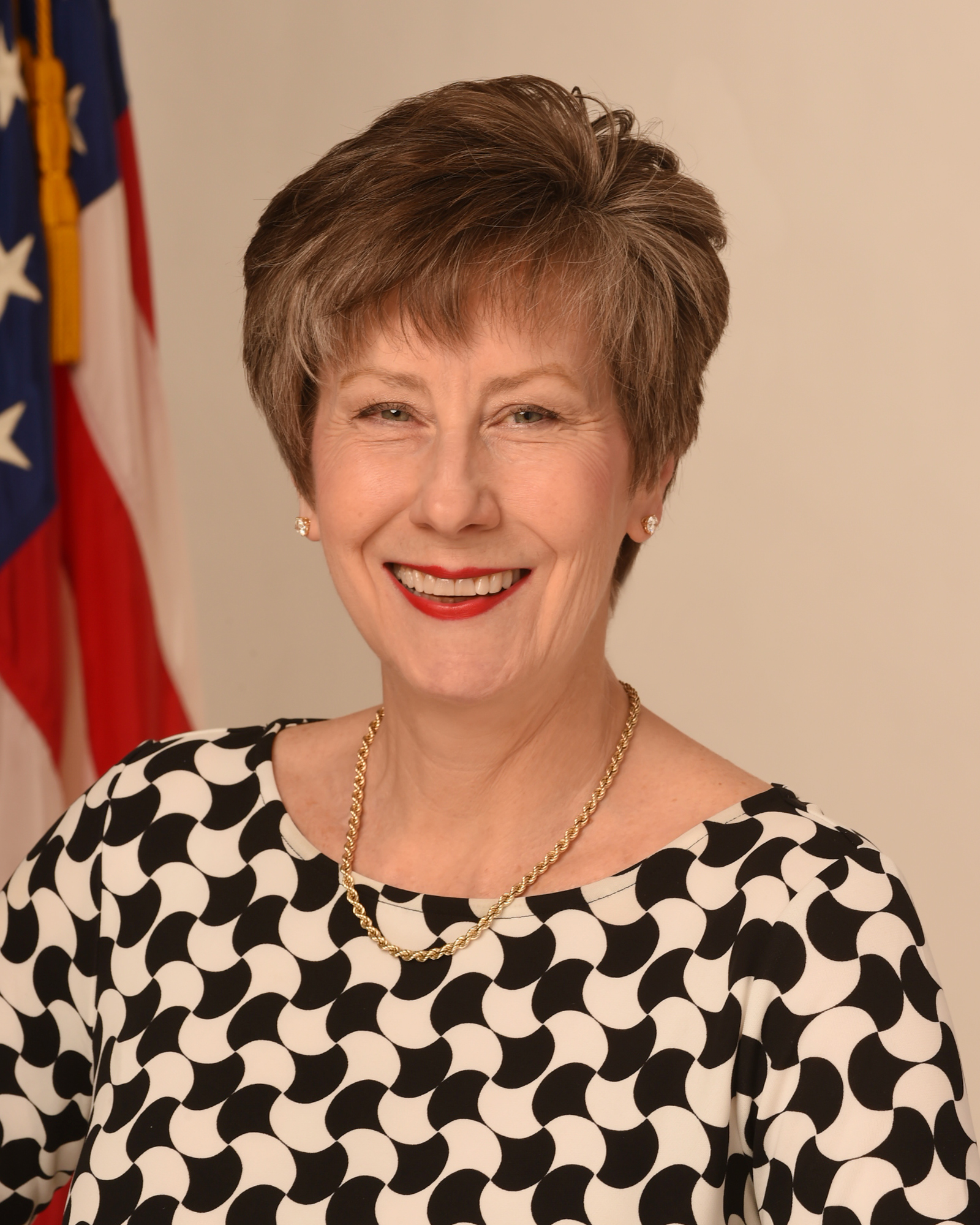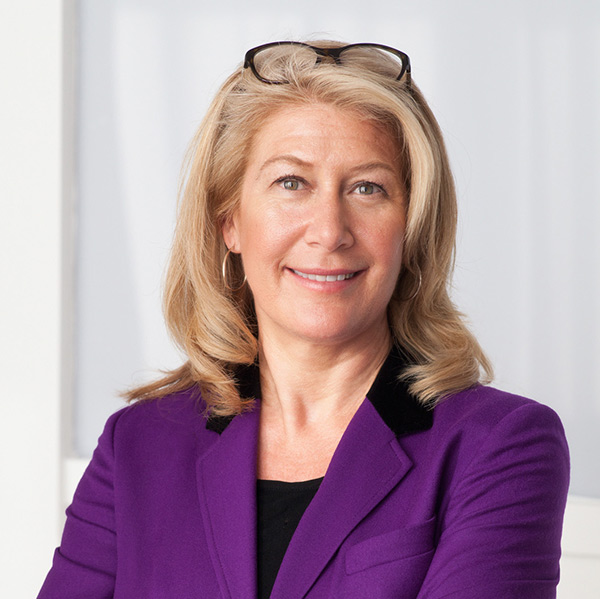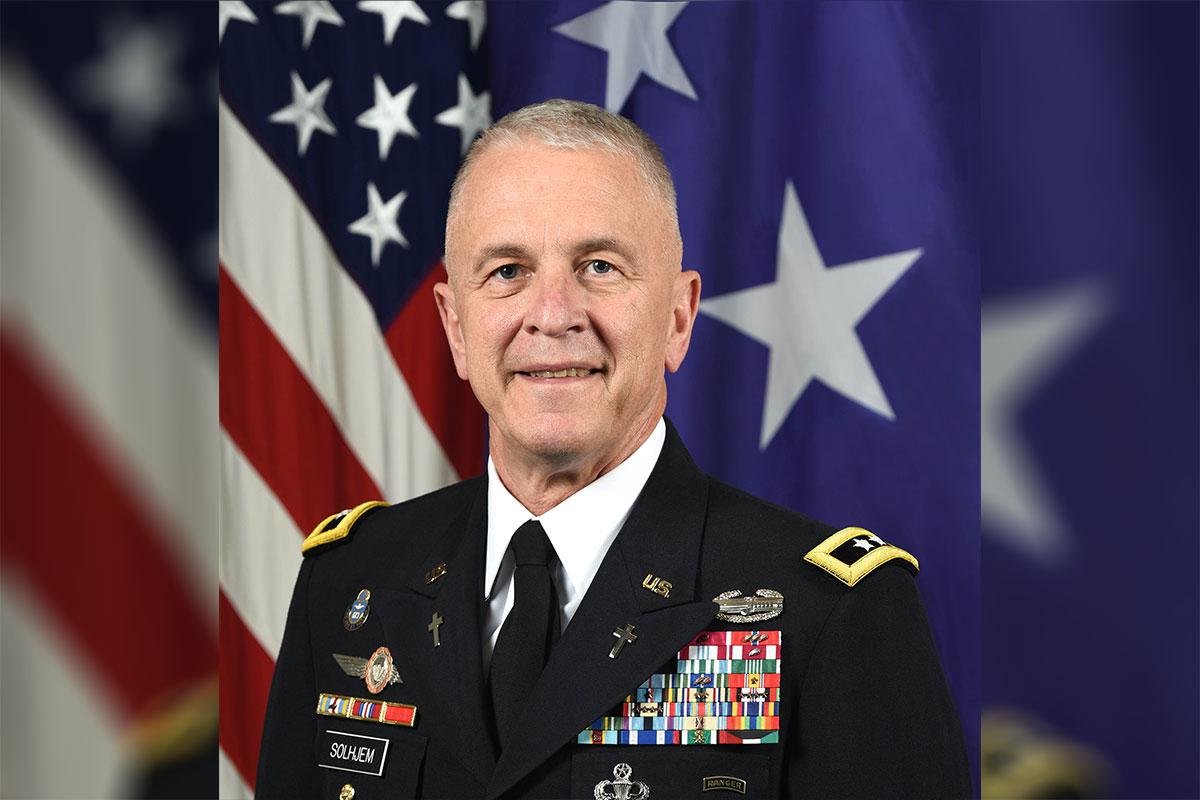As the U.S. Army’s Chief of Chaplains, Maj. Gen. Thomas L. Solhjem heads an office that represents 218 faith groups, ranging from the Pentecostal Assemblies of God to Sunni Islam to the Theravada, within six of the world’s major religions. To ensure that the Army properly serves all of these constituencies, Solhjem’s office meets periodically with 156 “endorsers” — a kind of national advisory board of leading civilian clergy.
“These are people who all believe that they have the right answers,” he says with a chuckle.
So this past January, when Solhjem brought Teachers College’s Lisa Miller, Professor of Psychology & Education, to speak at the United States Pentagon to the endorsers about “the science of spirituality,” he was taking something of a calculated risk. How would the group react to Miller's view that “spirituality” can be and is practiced by millions of people — those who do and those who don’t belong to an organized religion, and those who don’t believe in a God at all?
Solhjem, who recently keynoted the second installment of The Spirituality and Mental Health Webinar Series, a collaboration between Miller’s Spirituality Mind Body Institute (SMBI) at TC and the HHS Center for Faith and Opportunity Initiatives, wasn’t worried. [The Spiritualty and Mental Health Webinar Series is open to the general public. See the schedule for the other upcoming webinars in the series.]

As he saw it, Miller had three factors working for her. One was her years of research, published in leading peer-reviewed journals, demonstrating that the consistent practice of any faith lowers the risk of depression and suicide and is linked to beneficial changes in brain regions associated with emotion. “Her findings validate what we, as people of faith instinctively know to be true and puts it in the vein of science,” he says.
Miller’s listeners were also united by a sense of urgency stemming from the COVID pandemic. “Our society is suffering,” Solhjem says. “We don’t talk enough about the isolation, the suicides, the clinical depression, the people dying from other conditions because they can’t get in to see their doctors. We’ve lost far more people than the COVID statistics show.”
And then there was Miller herself. “She breathes, lives and exudes her passion for what she does. And we who wear the uniform are also fairly passionate people, who are willing to put our lives on the line for something bigger than ourselves.”
The result? Solhjem grins. “Let’s just say that it was the first time I’ve ever seen a presenter at one of these meetings get a standing ovation.”
Broader Context
The Spirituality and Mental Health Webinar Series isn’t just about the Army, but the kind of convening across religious, professional and political lines that Solhjem describes is very much at the heart of its purpose.
“We’re bringing the science of spirituality to the Army through the lens of Dr. Miller. “We really want to enculturate this into everything we do.”
— Maj. Gen. Thomas L. Solhjem, U.S. Army Chief of Chaplains
The bridge-building starts with Miller, at Teachers College, and her counterpart within DHHS, Shannon Royce, who heads the department’s Center for Faith and Opportunity Initiatives (known informally as The Partnership Center). The two met at a DHHS conference during Summer 2019 and felt an immediate sense of connection. At Miller’s suggestion, they began planning for a joint two-day summit at Columbia, but pivoted to a webinar series after the pandemic hit.

SCIENCE, WITH A PASSION TC psychologist Lisa Miller has conducted years of research, published in leading peer-reviewed journals, demonstrating that the consistent practice of any faith lowers the risk of depression and suicide and is linked to beneficial changes in brain regions associated with emotion. (Photo: TC Archives)
Each webinar addresses a different potential focus for spirituality in mental health — severe mental illness, personal relationships, the life course — and each is followed by meetings of regional action groups from across the United States at which mental heath workers, faith-based practitioners and clergy, addiction counselors and other audience members discuss how to apply what they heard to local problems. More than 1,400 people tuned into the first webinar in early October.
“Our office works on opioid addiction, mental health and other challenges that touch families from every socioeconomic level, race and faith background, across the political spectrum,” says Royce, whose center was first funded in 2001 by President George W. Bush as one of the original arms of his faith-based initiative and has been continued across all subsequent Presidencies, both Republican and Democrat. “We have a vision of what could happen if we could build bridges between the clinical side and the faith-based side to serve people with mental health concerns and their families. Each webinar approaches these issues both from the head and the heart, from a scientific point of view and a view formed by lived experience. Our hope is to bring people together to build a connection of trust and action — because the real work has to be done locally. It’s the picture of how I wish more conversations could be in this country.”
“We have a vision of what could happen if we could build bridges between the clinical side and the faith-based side to serve people with mental health concerns and their families. Our hope is to bring people together to build a connection of trust and action — because the real work has to be done locally. It’s the picture of how I wish more conversations could be in this country.”
— Shannon Royce, Director, DHHS Center for Faith and Opportunity Initiatives
“When you create a collaborative partnership between a leading university and the government, it brings out people from all areas of society, and everyone brings their A game,” Miller says. “It’s top researchers, its outstanding leadership from among the Southern Baptists, it’s a General from the Pentagon, it’s activists and caregivers for the mentally ill, it’s scientists and theologians. Everyone is for our country, and no one is saying no. And that’s really the most important thing. To paraphrase the Rev. Dr. Walter Flucker [a leading expert on the papers of the African American theologian and civil rights activist Howard Thurman Papers and a forthcoming speaker for the SMBI-DHHS series], we need to learn how to assemble in common purpose, not necessarily how to agree.”
Royce says that holding the series online has had its advantages. “This way, anyone can join us — they don’t have to be able to afford a flight across the U.S. and a hotel room for two nights. But you do lose something when you can’t sit across a table from people.” She’s hopeful that by next year, she and Miller will be able to hold in-person gatherings — one on each coast and another in the middle of the country.
Applied Focus
Meanwhile, Miller’s work with the Army chaplaincy is providing a model for the kind of applied follow-up that both Miller and Royce envision.
“When you create a collaborative partnership between a leading university and the government, it brings out people from all areas of society, and everyone brings their A game. Everyone is for our country, and no one is saying no.”
— Lisa Miller, Professor of Psychology & Education and Founding Director of TC's Spirituality Mind Body Institute
Later this year, Tom Solhjem will be bringing Miller to Fort Bragg, North Carolina, one of the world’s largest military installations, where she’ll talk to a group of 200 top-level people — including the fort’s Three Star General Commander and the Surgeon General of the Army — about the science of spirituality. The site will then run a three-day pilot to bring her ideas to leaders further down the chain of command to effect more than 80,000 soldiers. (There are approximately 1.3 million active-duty soldiers in the U.S. Army, with another 865,000 in reserve.)
“We’re bringing the science of spirituality to the Army through the lens of Dr. Miller,” he says. “We really want to enculturate this into everything we do.”
Why is spirituality such a top priority beyond the Army chaplaincy? Solhjem pauses before answering.
“Look,” he says. “George Washington said that the job of the chaplain corps is to care for the soul of the Army. It’s a sacred trust. Ultimately, it’s up to each human being how to live their life, but we get this treasure — these young people at age 18 to 25, who are still learning and forming — and we have both an opportunity and a responsibility to nurture their spirit, because that’s what will best sustain them in the face of adversity. We owe that to them, to give them and their families the fiber they need to stand in their day of difficulty, and, if necessary, give their lives.
“And what Dr. Miller has shown is that when you connect human beings with a belief in something bigger than themselves, especially within a community, the trauma in your life does not have to be the defining moment that breaks you. In fact, it can the basis for growing stronger, every day.”
— Joe Levine
[Read a story on Lisa Miller’s previous work with the U.S. Army chaplaincy.]
The Spirituality and Mental Health Webinar Series Schedule:
- Sep. 29, 12:00 pm— Spirituality and Treatment: Systemic Treatment Models Bridging Faith and Mental Health Professionals ALREADY CONCLUDED
- Oct. 13, 12:00 pm— Spirituality and Post-Traumatic Growth: Spirituality as Catalyst for Resilience REGISTER NOW
- Oct. 27, 12:00 pm— Spirituality and Severe Mental Illness: Questions of Recovery versus Purposeful Renewal REGISTER NOW
- Nov. 10, 12:00 pm— Spirituality and the Life-time Course of Mental Illness: Support for Patients, Caregivers, and Family by the Faith Community REGISTER NOW
- Nov. 19, 12:00 pm— Spirituality and Relationships: Contributions to Faith and Forgiveness in Recovery REGISTER NOW
- Dec. 8, 12:00 pm — Spirituality and Community-wide Crisis: Building Systems to Support Connection and Recovery REGISTER NOW
